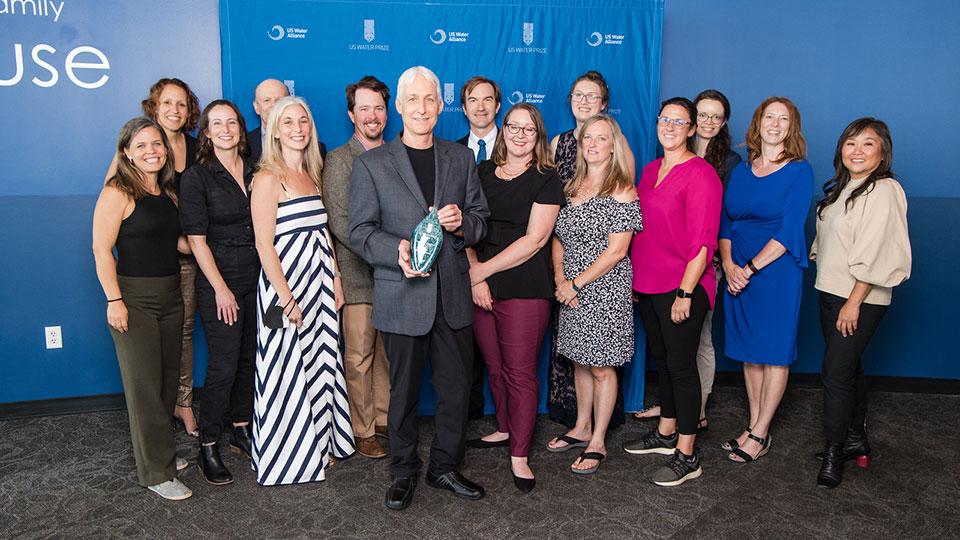Tetra Tech and the Jordan Lake One Water Coalition Win the 2022 U.S. Water Prize
Winning a prestigious U.S. Water Prize for our work supporting the formation of the Jordan Lake One Water (JLOW) coalition in North Carolina

Tetra Tech and its partners won a prestigious U.S. Water Prize for our work supporting the formation of the Jordan Lake One Water (JLOW) coalition in North Carolina.
The U.S. Water Prize recognizes organizations leading the way with sustainable, integrated, and inclusive solutions to U.S. water challenges and was announced at the U.S. Water Summit on September 13, 2022. The JLOW coalition received a prize in the Outstanding Cross-Sector Partnership category for facilitating cooperation and integrated water resource management in the Jordan Lake watershed.
We congratulate all finalists and our team on this recognition for their innovative approach inLeading with Science® to help our clients solve complex water issues.
Restoring water quality within Jordan Lake
More than 1.4 million people reside in the Jordan Lake Watershed, which encompasses 10 counties and 27 municipalities in central North Carolina. Jordan Lake serves as a critical regional resource for safe drinking water. Water quality and supply challenges continue to intensify due to increased pressure from the growing population and increased development.
The increasing water resource management challenges prompted state policymakers, regulatory agencies, local governments, and a range of other stakeholders to look for ways to reevaluate water resource management in the region.
纳入一个水原理
Tetra Tech supported the formation of the JLOW coalition, advising the growing organization onOne Water principles and management approaches。我们的工程师和科学家团队有助于提高人们对如何将一种水策略应用于流域的意识和达成共识。Jlow联盟现在涵盖了350多个互助的利益相关者,旨在确定跨部门创新的管理项目和策略。
“We seek to change the culture of water management to treat all water as a resource—integrating water, wastewater, and stormwater planning and solutions—and to be a model for this approach across North Carolina and the nation.”
– JLOW Advisory Committee
By 2065 the population relying on Jordan Lake as a drinking water source is expected to be more than three million. This underscores the critical importance of JLOW’s innovative work to improve the public health, ecosystem health, and financial health of this growing region.
Images courtesy of Jon Armstrong Photography

